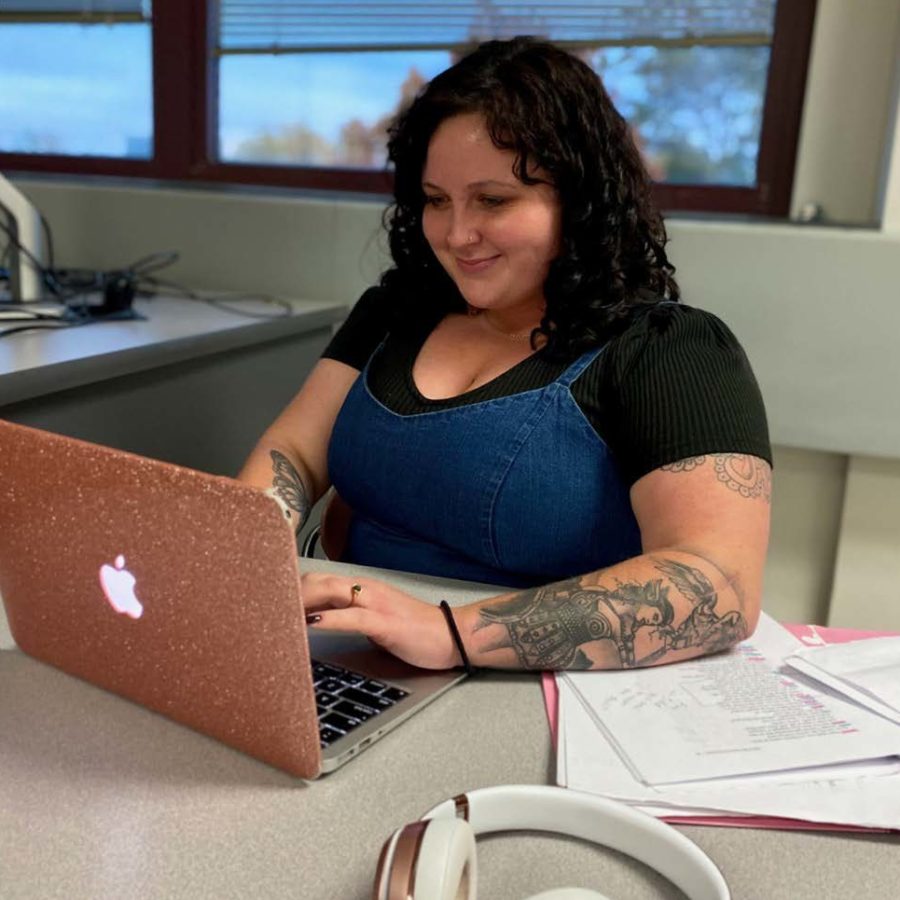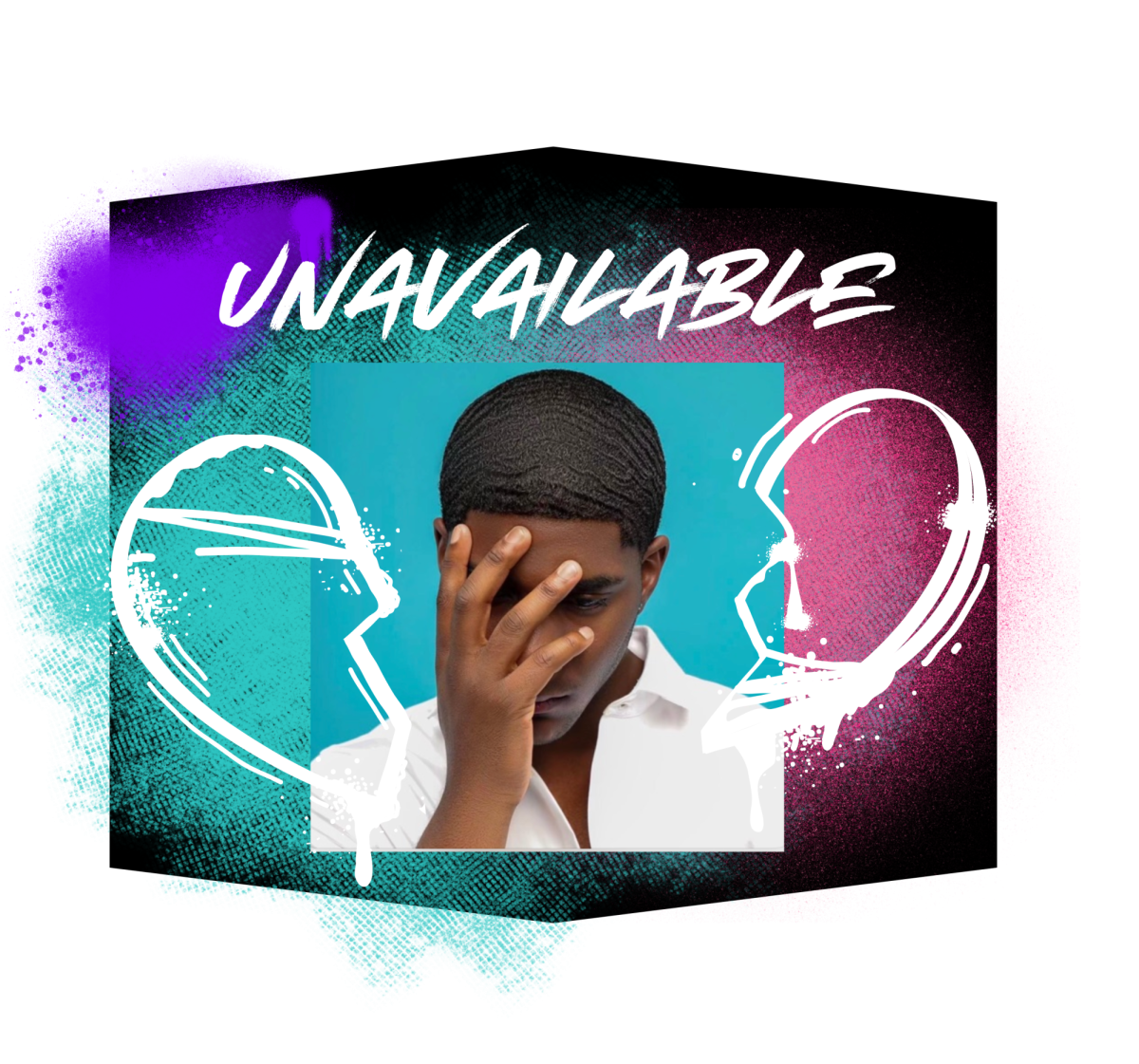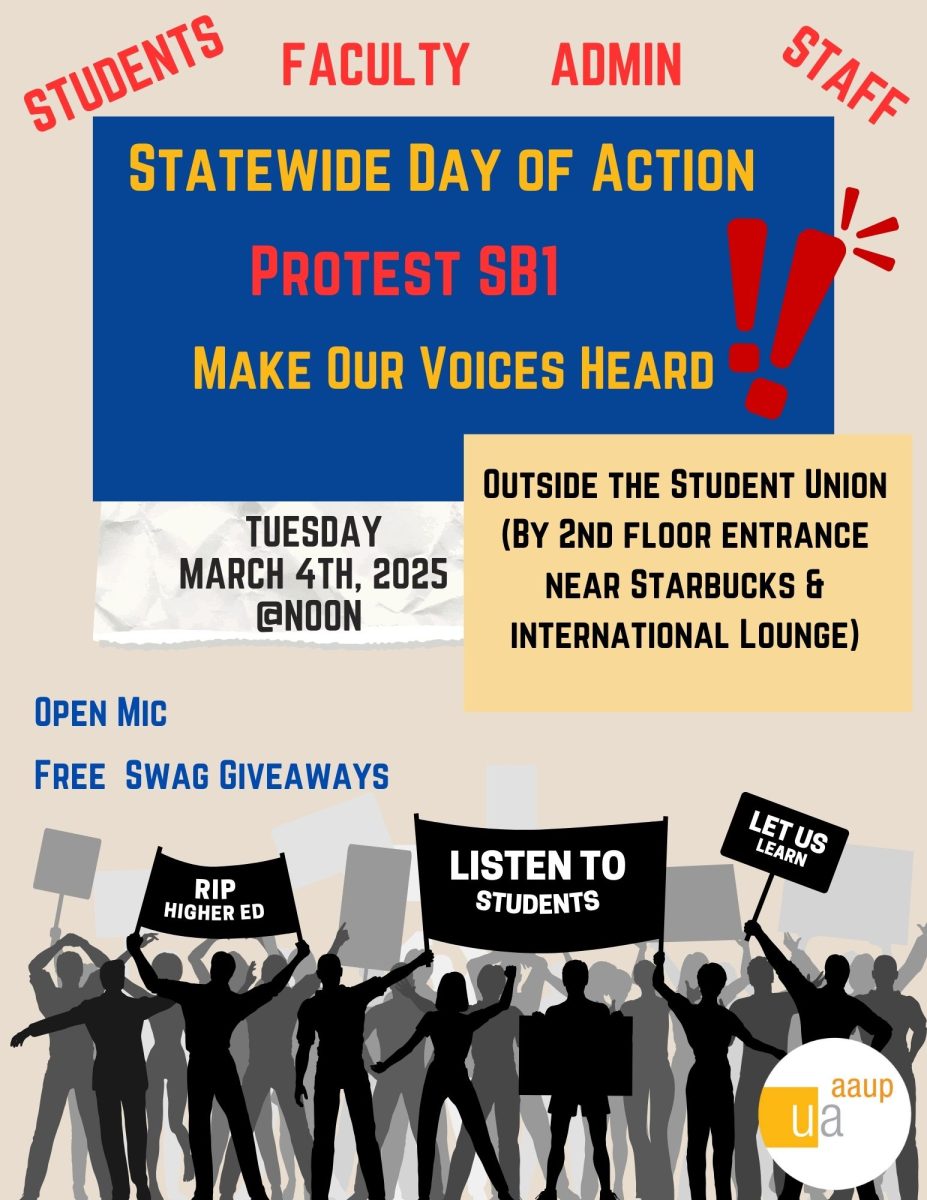Students Struggle With Heavy Work Loads,Causing Negative Effects on Mental Health
If you’re feeling overwhelmed this semester, know you’re not alone. Please make time to take care of yourself, regardless of how full your plate may be. You matter.
Abigail Stopka working late on coursework for her Public Relations Campaigns class.
December 13, 2021
Many students, including myself, have found themselves feeling bogged down by the weight and effects of the on-going COVID-19 pandemic. Even with campus opening back up this fall, some students are struggling to maintain a sustainable and realistic lifestyle.
Some students have been affected by the current U.S. labor shortage, leaving them feeling obligated to work longer hours, pick up more shifts, and put aside schoolwork to help organizations stay afloat. Others are feeling the wrath of the steadily increasing inflation in the economy that is driving up the cost of everything from housing to groceries.
And still, some are struggling with COVID-19 itself. From contacting the actual sickness, causing them to miss work and classes, to losing loved ones to the disease or the need to become a caretaker.
College students are finding themselves working multiple jobs this semester to keep up with the cost of living while balancing a heavy course load, internships, organization obligations, and more. All while the dark cloud of COVID-19 still lingers in the air above us, many have found that their mental health is struggling.
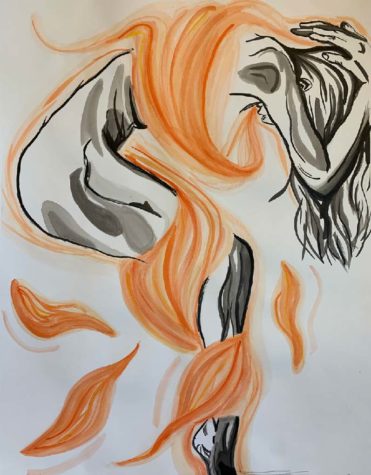
Graphic Design Major/Illustration Minor (Image via Kara Devol)
Abigail Stopka, a senior public relations major, has found herself working long days and late nights, juggling three jobs and a full course load.
“This semester, I’m working about 30 hours a week doing tech support for Spectrum from 1:00 p.m. to 12 a.m., and I usually stay up until about 4:00 a.m. catching up on school assignments after work,” Stopka said.
She also has class all day on Monday and Wednesday until 6:30 p.m. and on the weekends, works at WQMX as a DJ in the mornings while finding time to squeeze underwriting work for WZIP.
“Fridays are my only days off but I’m usually so busy, I often find myself playing catch up or sleeping all day instead of enjoying myself,” Stopka said.
When asked about her mental health, she says she’s doing better than last semester.
“Before the semester begins, I really have to mentally prepare myself for what’s to come. Sleepless nights, the stress of deadlines, trying to retain information… it’s hard. My mental health is a roller coaster throughout the semester. On weeks where I have a lot to do, it’s easy to fall into a depression but I’ve been pretty good at picking myself back up.”
Stopka also shared that there isn’t a lot of room for decompression in this lifestyle, as her little free time is often spent catching up on errands like grocery shopping, cleaning, and doctor appointments. Last semester, she found her grades suffered and although her days seem filled this semester, she took on fewer classes and dropped a few hours at one of her jobs this fall.
The current state of the economy has hit her the hardest, leaving her worried about even turning on her heat this winter.
Gas, groceries, and utilities are where Stopka is struggling the most, as her gas bill has already doubled, and she has yet to turn on the heat yet in her small, one-bedroom apartment.
She is also concerned with the labor shortage affecting the community.
“I like going to coffee shops to work on homework and a lot of them have been closing early or closing inside completely,” she said.
For a glimmer of hope, Stopka shared what she’s most looking forward to when things settle down and she has less on her plate.
“I can’t wait for time to just live and be by myself. I think the hardest part of this lifestyle is that my time is obligated to everyone but me. I can’t wait to wake up one day and have absolutely nothing to do,” she said.
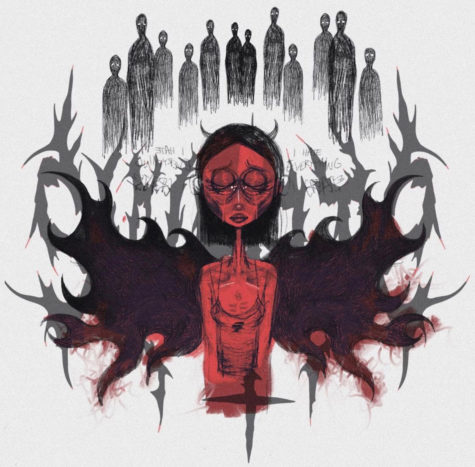
Studio Art Major / Psychology Minor ( Isabelle Nutt)
For most college students, graduating means they will be taking on more, but for Stopka, the thought of only working one job will be a breath of fresh air.
Her advice to students in a similar situation this semester is to just keep going.
“As hard as it is, this is all temporary. Every semester and every class is one step closer to the finish line.”
John Albrecht, a senior electrical engineering major, taking 15-credit hours this fall, is happy to see people back on campus this semester.
“Unfortunately, COVID-19 has caused most of my classes to remain online this semester but being on campus a little bit has really helped my mental health. It’s so nice to see so many people back on campus.”
While Albrecht is currently not working, he is actively pursuing jobs for his upcoming graduation date. On the weekends, he finds time to relax, watch YouTube videos, or work on projects he enjoys that aren’t related to school.
Due to his heavy course load, the few hours of non-school-related activity he does have doesn’t feel like enough, leaving him with just 12 hours or so per week to focus on himself.
Albrecht is most looking forward to the next chapter of his life post-graduation and is focused on finding an ideal place to work. He encourages students that are juggling a heavy workload to make their time count.
“Make sure you are invested in whatever you’re doing,” he said. “Whether that by studying, relaxing, or hanging out with a friend. Distractions take away from the moment.”
Laney Miller, a third-year senior public relations major, has found herself juggling more than most this semester.
As a member of the dance team and two student organizations, pursuing a minor in Marketing, working both a job and an internship, taking a full-time course load, and serving as an ambassador for the university, her anxiety has been through the roof.
“My mental health is never great during school,” Miller said. “I could spend hours studying and still feel not prepared or like I am forgetting something. On top of that, senior year is even more stressful, with the constant thought of ‘what am I going to do once I graduate?” she said.
She feels as though COVID-19 has affected the college experience for her the most this semester in particular.
“I’m happy to see they are doing some events rather than none, but with the university’s cut budget, they have gotten rid of some things to save money and I feel like that takes away from us students,” she said.
As for her grades, Miller shares that she would rather be sleep- deprived than receive a bad one.
“This year, I did submit a paper late and was disappointed in myself,” she said. “It was 4:00 a.m., and I couldn’t keep my eyes open anymore, I just fell asleep. I typically stay on top of my grades no matter what, but my mental health does not benefit from it.”
To decompress, she enjoys journaling and putting all her thoughts into words, especially when she feels worked up.
“Sometimes I have complete mental breakdowns, crying on the bathroom floor, but honestly, it really helps me sometimes to get it all out,” Miller said. “I also try to let myself have a day to myself once a week, where I don’t have to worry about work or school. But some weeks, there just isn’t time.”
When things settle down for Miller, she can’t wait to just spend a day with her family. Her best advice for students in her shoes? A planner.
“You need a planner,” said Miller. “You need to write things down or you will forget things. A planner will keep you organized and help you meet all your deadlines.”

Sophomore Marc Smith
Painting & Drawing Major
Minor in Illustration
The art piece is called
“Troubled Souls”
depicting two artists
facing their emotions and
doubts that will eventually
consume them. (Image via Marc Smith)
Personally, this reporter is taking 13-credits this semester, including a 6-credit internship where I work approximately 21-25 hours per week. I also work part-time at a bank 20-25 hours per week, and I am serving as a reporter and social media editor for The Buchtelite.
Inflation of things like gas and food has had a serious effect on me this semester and I would be working more if I had the time. The increased cost of everything is starting to make an impact on my budget.
My mental health fluctuates, but I’ve noticed my depression and anxiety are currently at an all-time high as I try to juggle my workload —especially as I near my December graduation date. I know I’m not alone in my post-graduation anxiety, constantly worrying about what’s next for me.
Like Stopka, I am most looking forward to some “me time.” When I have downtime throughout the week, I constantly feel anxious like I’m forgetting to do something or feeling guilty for watching Netflix instead of prepping for the week to come.
I think the most important thing to note for anyone else struggling right now, regardless of your situation, is that this too shall pass.
The University of Akron offers free and confidential personal, career, group, and educational counseling for current students, both in-person and online.
There are also other 24/7 community services available to everyone, including but not limited to the Suicide Prevention Hotline (1-800-273- TALK), the Crisis Text Line (text START to 741-741), Portage Path Psychiatric Emergency Services (330-762-6110), Portage Path Psychiatric Support Hotline (330-434-9144), and more.
If you or someone you know is struggling with mental health, there are ways to get help.
Remember that you are not alone, and I think I speak on behalf of everyone here at The University of Akron when I say your perseverance and resilience are outstanding. We are so proud of you, please keep going.


